Subscribe: Apple Podcasts | Google Podcasts | Spotify | Android | Stitcher | Blubrry | Email | TuneIn | RSS | More
This episode of the Crime Cafe podcast features my interview with crime writer David Rohlfing.
Learn more here about his Detective Sasha Frank mysteries!
Before I bring on my guest, I’ll just remind you that the Crime Cafe has two eBooks for sale: the nine book box set and the short story anthology. You can find the buy inks for both on my website, debbimack.com under the Crime Cafe link. You can also get a free copy of either book if you become a Patreon supporter. You’ll get that and much more if you support the podcast on Patreon, along with our eternal gratitude for doing so.
Check us out on Patreon: https://www.patreon.com/crimecafe
Debbi (00:54): But first, let me put in a good word for Blubrry podcasting.
I’m a Blubrry affiliate, but that’s not the only reason I’m telling you this. I’ve been using Blubrry Podcasting as my hosting service for my podcast for years and it’s one of the best decisions I ever made. They give great customer service, you’re in complete control of your own podcast, you can run it from your own website, and it just takes a lot of the work out of podcasting for me. I find for that reason that it’s a company that I can get behind 100% and say, “You should try this.” Try Blubrry. It doesn’t require a long-term contract, and it’s just a great company, period. It also has free technical support by email, video, and phone, so you can get a human being there. Isn’t that nice?
If you want to podcast, try out Blubrry. No long-term contract, excellent distribution, and great technical support, too, by email, video, and on the phone. I’ve included an affiliate link on this blog.
Download a copy of the PDF transcript of this episode here.
Debbi Hi, everyone. I’m pleased to have with me today the author of the Detective Sasha Frank mysteries. He is currently working on his third book in that series. It’s my pleasure to introduce my guest, David Rohlfing. Hi, David, how are you doing today?
David 1:11 I’m doing very well, Debbi, how are you?
Debbi 1:14 Excellent. Thank you. Oh, I love your backdrop. Look at those covers. Very, very nice.
So tell us about Sasha Frank, what inspired you to write this particular series about this particular protagonist?
David 1:29 Well, I think I was, it was suggested to me by a friend when I was nearing retirement from my business career that I should write a book. But he suggested that I write a book about business and business philosophy and the like, in especially customer service, which I was heavily involved with. So I attempted to do that and I found out very quickly that it’s difficult to write a book like that, because you’re really writing about yourself and I wasn’t comfortable doing that. So I instead pivoted and thought, well, maybe I could write a mystery novel. And I sat down and over one winter for a few months, and just sat down and actually wrote DELIBERATE DUPLICITY and initially, it was only going to be the first book in the series.
But I enjoyed writing it and enjoyed the character very much, who I developed and wrote a second book COLD CONSEQUENCES, but the character its himself was derived from being a small, smaller town detective. Obviously, there’s a lot of detectives in big cities across the country. But there’s not a lot of smaller towns and I live in a town that’s got about 120,000 people in the two cities that make up this area and I thought it would be interesting to write about a smaller detective in the Midwest.
Obviously, there’s a lot of detectives in big cities across the country. But there’s not a lot of smaller towns and I live in a town that’s got about 120,000 people in the two cities that make up this area and I thought it would be interesting to write about a smaller detective in the Midwest.
Debbi 2:57 I was gonna ask you about that. What made you choose Bloomington?
David 3:02 Well, I live here. So I grew up in central Illinois, I’ve lived all around the United States and outside of the United States. But eventually, we came back to where we kind of grew up or nearby, because we have family and friends in the area from a long time ago. So I thought it would be interesting to write it, again, about a detective in a smaller city.
And I picked out Bloomington-Normal as a Twin Cities in central Illinois, as a location.
Debbi 3:38 I think there’s … I don’t know how if you agree with this or not, but I perceive a kind of lack of attention to the problems of smaller cities and crime in smaller cities, on television shows, things like that, then there could be I think.
David 3:56 I agree. I agree. And I think that’s what drove me to write about this particular setting. Again, you see, you know, Michael Connolly in, um, Los Angeles with Harry Bosch and the Lincoln lawyer in Renee Ballard and the like, and, uh, I also like Lee Child and he writes, you know, with Jack Reacher all over the place. But I think we tend to see characters on television shows or movies or books that are in the larger cities and the crimes that are committed in those areas, which are terrible crimes, of course.
But that’s right. I think that few people really pay attention to the smaller towns and cities across the United States specifically and in the Midwest, especially and in my case, more people die in one of my books in Bloomington-Normal than die realistically here on an annual basis. So crime is, it’s a different type of crime. We don’t see a lot of murders. We always see a lot of other types of crime.
Debbi 5:03 Yes, yes. And the people who live in those towns are also very interesting. I mean, there’s a lot of community activity and so forth that people don’t really appreciate sometimes.
You describe your detective as relentless. What is it that makes him so relentless or motivates him in general?
David 5:26 Well, I think he is. His father was an FBI agent, and a field office manager, as in the character of Sasha Frank, and his mother was a Russian Embassy worker who defected during the Cuban Missile Crisis and I think he has a very strong, you know, community background. He has, he fights for justice, and specifically he fights for justice for those who have died and their families and he speaks for them effectively and he does not stop until he figures out exactly what happens. So that’s really the relentlessness that comes from that. He, you know, grew up in Springfield, Illinois, which is a similar type of town, within an hour’s drive of where I’m at now, and it’s just the nature of Midwesterners, I think, to be very strong and have strong beliefs about what’s right, and what’s wrong and justice in the end. So hopefully, that comes through with this particular character.
Debbi 6:41 Very interesting. Very cool. Where do you picture the series going? Do you have an overall plan in terms of number of books and the character arc in general for your protagonist?
David 6:54 Yes, I think I initially just was writing one book. But as I was writing, I, as I said, I really enjoyed writing, I enjoy the character. I think there’s a lot of ways to explore the character, and especially, you know, this particular area, and crimes that can occur in this area. So I wrote the second book. In the second book actually is a prequel, as it turns out. And I referenced in the first book crimes that occurred in the second book and I addressed opioid, the opioid crisis that is affecting America in the second book, and how that can devastate families and have unintended consequences. So I think, you know, writing that second book, and the third book that I’m writing now is talking about, you know, obviously further murders, but maybe is more of a psychological thriller, than the first two books are. So it goes in a little bit different direction. So I’m going to keep writing, as long as I enjoy writing and people read the books.
Debbi 8:06 Would you describe your writing style as more leaning towards the procedural type of crime fiction or thriller?
David 8:17 There’s a lot of procedural aspects of it. Actually, the first book won an American fiction award for murder mystery, and in the specifically police procedural category. So I write a lot about that. But I think it’s also … I guess, I would view them as a thriller. The second book is much more fast paced than the first book, I think, and some of that I believe I learned more about writing as I was writing. So I learned to move through things quicker and say, more with less words, as I’m sure you’re aware, to try to get your point across with the fewest number of words. So I think I’d say it’s a little bit of both. Hopefully, they’re very suspenseful and it keeps the reader guessing as to what’s going on until, you know, the last, hopefully, last few pages.
Debbi 9:15 Yes. I was intrigued by the fact that you made your second book a prequel, which most people, with the authors I’ve seen, they’ll write a few books, and then they’ll say, you know, I should talk more about the backstory of this character. What made you decide to write a prequel on the second book?
David 9:35 Well, I think actually, as I said, I learned a lot in writing and as I was writing the first book, through the editing process with the editors and the publisher, I reduced the word count by 50% almost. So I had really gone overboard with writing, and I believe that, you know, learning and understanding how to tell a good story, I weaved in the prequel into the story because I thought I was discussing how few of murders take place in the area and as I said, both of my books have a lot of murders in them that need to be solved. But I thought it’d be a good point to point out that few murders take place. But there were murders that had been solved a few years earlier by the character Sasha Frank. So he does have experience, he does have an understanding of the investigation process and I wanted to bring that out and thought it would be best served by speaking to it in the first book, but writing it as a complete book with the second book about the experiences that I’ve written about in the first look, that might sound a little confusing. I understand what I’m trying to get across.
Debbi 11:00 And get the impression that you did a bit of overwriting on the first book that kind of came out maybe, and I guess, informed your second book?
David 11:11 It did. It did.
Debbi 11:11 Yeah, I know, the overwriting problem, because I used to do that. That was, you know, when you go from writing legal stuff to fiction, it’s like, you don’t have to explain every single thing, Debbi.
David 11:25 That’s right. And I think, yeah, that was something I learned in writing. I’ve written logs and that type of thing during my career and sometimes those were long and drawn out, trying to explain a particular point. I think that came out in the first book. Through the editorial process, we stripped a lot of that out. But that’s why I say the second book is a faster, quicker read, I believe, because I learned so much from writing the first book.
Through the editorial process, we stripped a lot of that out. But that’s why I say the second book is a faster, quicker read, I believe, because I learned so much from writing the first book.
Debbi 11:54 Absolutely, you learn so much by just doing. Let’s see, how much research did you do before you wrote the book?
David 12:06 Very little, quite frankly. I just sat down and started writing. I know that I read a number of books about how to write a book, read a number of articles about how to write a book, and I started out with just a few characters. I didn’t have an outline. I knew how I wanted the book to start in both instances and I just sat down and started writing and built the book as I wrote, and then I would, you know, as I was writing, I might then go back and put something more in toward the beginning of the book to add more depth about something that was taking place in the book. But I think, you know, we watch so many television shows and movies that have investigations, you know, CSI, those types of shows that all of us are kind of like amateur investigators.
So you see so many different things and I know that sometimes juries and real trials today want to see all that information that the TV portrayals or movie portrayals of what takes place in an investigation, when in reality, that might not really be what takes place. So I think seeing all of those and reading all the books that I have in my life, about investigators or police detectives, I think it gives you an idea of how a crime scene, how you approach a crime scene. And actually, from my perspective, and my business background, I actually go about how would I do it? How would I fix something or solve a problem that I experienced in my business life? I kind of addressed that the same way in writing a scene in a book. You approach a murder victim, and what do you do? And I just started thinking about, okay, how would I do it? Using all the background experiences I had from reading and watching, you know, investigators on television, and that is where that amateur investigator in all of us comes out. I think I just put pen to paper.
Debbi 14:24 Interesting. I was gonna ask you if the career that you had before starting your fiction career informed your writing. It sounds like it most definitely did.
David 14:36 Well, I yeah, I think the experience of solving problems especially, I was an executive for most of my career and I traveled to six continents and countless countries in during my career and work. So I have a lot of experiences that you know, some people may not have, but that problem solving aspect that certainly comes out in the book. Because again, anything that I or Sasha Frank, anything that he experiences, it’s really obviously through my lens, and it’s how would I address a problem. And solve it.
Debbi 15:21 Yeah. Let’s see, what advice would you give to anyone who’s interested in writing for a living?
David 15:30 Read a lot. I think reading helps you understand different styles of writing that that are successful and that other people have utilized over time. So I think that’s important and also learning how to say something in the fewest number of words, and letting the reader really paint the picture, from what you’re telling them. So not, not so much detail, detail where detail’s needed. But, you know, not too much detail, so allowing the reader to paint their own picture of what they think is going on, in what’s happening at that point in time of the book, I think and always write, keep writing. And the only other thing I would add would be that you have someone that you trust, a friend, spouse, to read what it is that you write, who will give you honest feedback on how they, you know, read and understand what it is you’re trying to get across. That I know. My wife is that for me, and she’s been most helpful in that process.
Read a lot. I think reading helps you understand different styles of writing that that are successful and that other people have utilized over time.
Debbi 16:47 Yes, my husband was very helpful for me and that process as well. Having somebody you trust who you know, will be honest.
David 16:57 It’s critical.
Debbi 16:57 Yeah, that is critical. Let’s see. There’s something else I was going to ask you. About the research, I asked. Oh, yes. What authors do you like to read?
David 17:11 I mentioned Michael Connelly, and Lee Child, Dan Brown. I enjoy how deep he goes in like THE DA VINCI CODE. Patricia Cornwell is a favorite writer as well. So I tend to, you know, stay toward the murder mystery or thriller side investigators. People who have a purpose, and in some regards, are kind of like Sasha Frank. They’re relentless in pursuing truth, and justice for victims and I think characters and all those different books are all some somewhere in that way.
Debbi 17:58 Very cool, great choices of authors too good people to emulate or get inspiration from. Where can people find you online?
David 18:08 I have a website, www.davidrohlfing.com. And they can find the books there. They can find out more about me. They can order books there, or they can find them online at certainly Amazon or Barnes & Noble. But davidrohlfing.com, they can certainly find a lot of information out about me.
Debbi 18:34 Great. Oh, I just want to say, Oh, also, is there anything else you’d like to add before we finish up?
David 18:41 I would add one thing and something very personal to me. But in 2019, I had sudden cardiac arrest and was gone for 15 minutes and a number of heroes brought me back to life and the one thing that experience taught me or I learned from it is that people with a very simple, inexpensive procedure, it’s called a CT heart scan, calcium, CT heart scan. If they have that procedure done at their hospital, and I know here locally, it costs $100. You can have that procedure done and it will tell you how your heart is functioning, and if you have any issues. I’ve had a number of friends and family who’ve had this test done because of what happened to me and many of them have found that they did have a problem. They weren’t aware of the problem, just as I was unaware that I had a problem and were able to through the medication or procedures, resolve the issue and remain healthy. So I would just add that it dramatically changed my life and I wished I would have had a CT scan, heart scan before.
I’ve had a number of friends and family who’ve had this test done because of what happened to me and many of them have found that they did have a problem. They weren’t aware of the problem, just as I was unaware that I had a problem and were able to through the medication or procedures, resolve the issue and remain healthy.
Debbi 20:04 I hear you loud and clear. I had a stroke in 2004. It was caused by a congenital heart defect and that led to a situation I’ll talk about in a little bit, actually, because I’m doing a fundraiser.
David 20:21 Right. It changes your life.
Debbi 20:23 It does change your life, and it makes you realize you’re not going to live forever. I mean, not that I didn’t know that anyway. But life is short, and it can end quickly, faster than you expected.
David 20:36 Well, if it wasn’t for the work of my wife, and a police officer, and 911 operator, and paramedics, and doctors and nurses at the hospital that I was fortunate enough to only be nine minutes from. If it wasn’t for all of those heroes in my life, I wouldn’t be here talking with you now or have written these books. So yeah, life can be short, and you need to make sure that you live every moment of it.
Debbi 21:02 That’s it. Yeah, I definitely am with you there and I understand. I want to thank you so much for being here, by the way, David. It’s been nice talking to you. Thank you for sharing that story, too.
David 21:16 Thank you.
Debbi 21:17 Yeah, sure. I yeah, I do want to tell people that I’m participating in a fundraiser for the Dystonia Medical Research Foundation. Dystonia is a rare movement disorder that affects people in a variety of ways. It can be quite debilitating as I know, because I have it, and it has no cure, or adequate or consistent treatment at this time. So it’s all very hit or miss in my experience in terms of treatment. I hope you’ll consider supporting the cause. I’ll include a link to my team, my fundraising team somewhere in this blog post or wherever I put this video up and please sign up. It’s free. You don’t even have to donate, but if you do, it would be that it would be so much it would be so awesome. I would really appreciate it. Research needs to be funded on this people. So thank you for listening, and I will see you next time. Meanwhile, take care and happy reading.
Please support the search for a cure by joining my team!

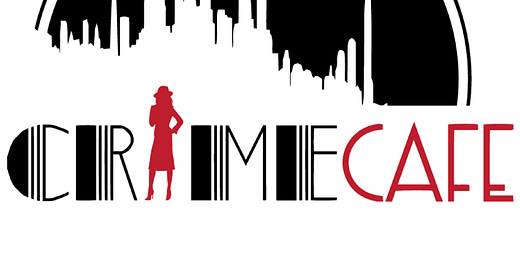



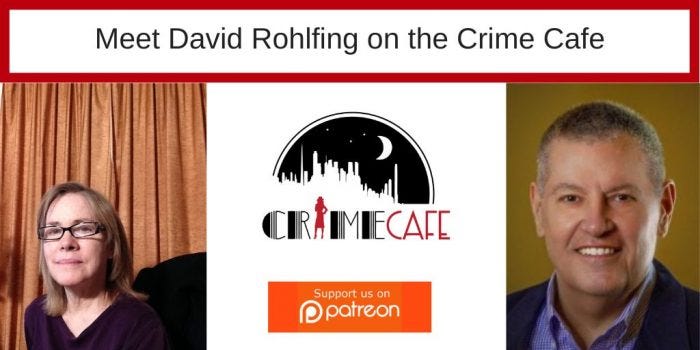



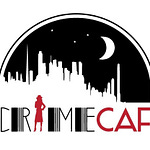
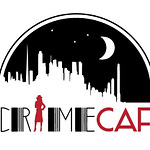
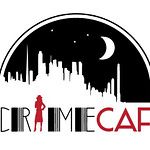
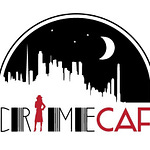

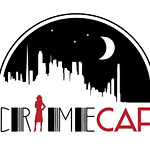


Share this post